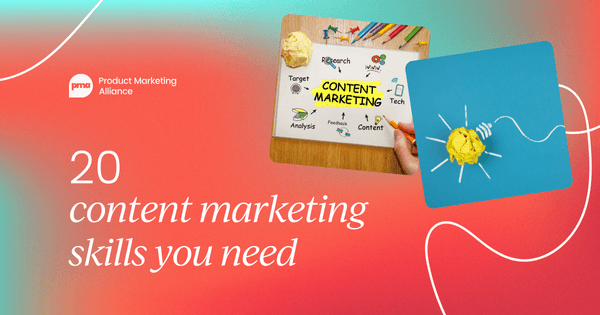I had the privilege of attending and speaking at the PMA Chicago Summit, connecting with brilliant product marketers and soaking in valuable insights.
It reaffirmed my love for the art and science of product marketing, and sparked some thoughts I’d love to share.
These are by no means a comprehensive summary of all the great insights, but the ideas that came to me – a seasoned marketer who’s always excited to learn something new!
It’s not about the tools, it’s about the craft
The best PMMs aren’t the ones with the fanciest tools – they’re the ones who masterfully use what they have. Creativity, storytelling, and aligning deeply with customer needs matter more than ever.
AI: Opportunity and complexity
Basics over buzzwords
"AI-powered" has become an overused buzzword that threatens to overshadow genuine value. Product marketing managers must remain grounded, prioritizing real customer problem-solving over flashy feature announcements.
The key is to focus on meaningful applications of AI that genuinely enhance customer experiences, rather than simply jumping on the technological bandwagon.
AI doesn’t sell itself
Introducing AI solutions into the sales process adds significant complexity. Unlike traditional product pitches, AI-driven offerings often require extensive compliance reviews and involve more comprehensive buyer committee discussions.
These additional layers can potentially become deal breakers if not handled strategically. The most effective approach is to proactively anticipate and address potential concerns, ensuring that the value proposition remains clear and compelling throughout the sales journey.
Optimizing your AI workflow and integration
Successful AI implementation demands a structured approach. By training AI tools with detailed personas, comprehensive brand guidelines, and well-defined inputs, marketing teams can significantly improve both efficiency and output quality.
Developing standardized templates for AI interactions ensures consistency and helps teams leverage these tools more effectively.
This methodical approach transforms AI from a mere technological novelty into a powerful, reliable marketing asset.
Continuous learning and experimentation
AI tools are changing rapidly so, if you’re not trying new features and tools, you may miss out.
Personally, I have been playing with Google’s NotebookLM podcast generation feature since Brian Kracik, Head of Product Marketing at Google, introduced it to us in Chicago.
I used it out of the box to create a podcast using my PMA Summit notes. It's going to take a bit more tinkering to make it work as desired, but it sure has promise!
Transforming content through AI-powered repurposing
AI offers remarkable potential for content multiplication. A single piece of source material – such as a customer video interview – can be strategically transformed into multiple formats: edited videos, blog posts, social media snippets, podcasts, and more.
By planning content with a multi-purpose mindset, marketing teams can maximize the value of their original material, reaching wider audiences through diverse channels while maintaining consistent messaging.

Messaging and positioning
Differentiating your product requires more than listing features or solving problems.
Build your product story around your brand's unique attributes, strategic narrative, and buyer-centered insights.
Focus on clarity and simplicity: communicate what truly matters to your audience, avoiding information overload.
In other words, embrace the KISS principle: Keep It Simple and Straightforward. A clear, focused message will always be more powerful than a complex, cluttered one.
Sales enablement: Build articulate champions
As Tim Pollard at Oratium, shared, the real test is the meeting after the meeting – when your contact sells your product internally.
Equip them with clear, repeatable messaging with artifacts for recall (slides, collateral, video) so they can succeed in bringing others along. A concept he calls being an “Articulate Champion.”
Another fantastic way to approach this is presented by April Dunford in her book, Sales Pitch.
Marketing innovation and collaboration
Consider Marketing Hackathons. This was only briefly mentioned at the Summit, but it resonated with my product manager roots and I want to try doing it more.
Collaborate with internal teams and even customers to generate breakthrough ideas to address big challenges. I’ve used the Sprint (Jake Knopf) framework previously for ideation and think this approach would work well as a format for a Marketing Hackathon.
Win/loss insights
Never rely solely on sales or your CRM for win/loss data as it is wrong 85% of the time. Third-party tools or partners are one way to get more unbiased insights.
Other PMMs at the Summit mentioned using tools such as Gong to listen to customer interactions – especially when coupled with the power of AI-aided data synthesis.
As PMMs, we’re at the intersection of creativity and strategy, driving clarity and impact in complex environments.
The Summit reinforced my excitement for helping organizations sharpen their positioning, navigate innovation like AI, and deliver messages and products that can change lives for the better.
What other things are you exploring lately?
Let’s connect so we can chat more about this. I’m available for product marketing and product strategy consulting or full-time work and appreciate your support!


















 Follow us on LinkedIn
Follow us on LinkedIn




.svg?v=85af970283)